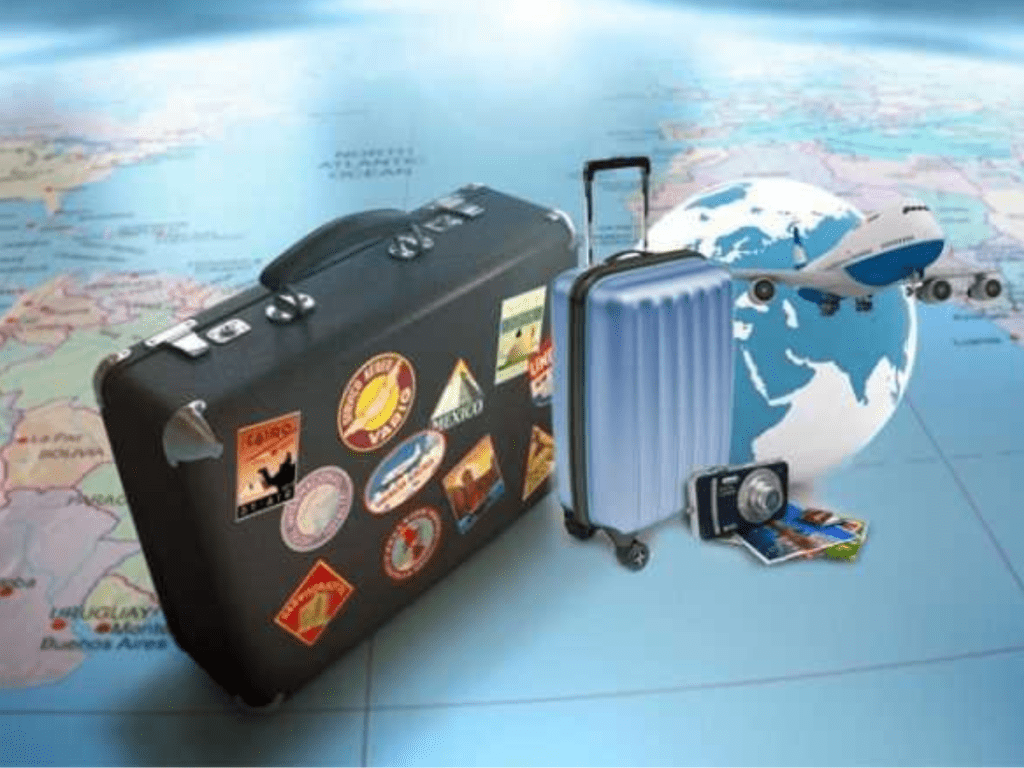Introduction
When you’re planning a trip, whether it’s a short getaway or an extended vacation, the excitement of exploring new destinations often overshadows the practical details. But amidst all the preparations—booking flights, accommodations, and activities—one crucial item that often gets overlooked is travel insurance. While it may seem like an unnecessary expense at first glance, travel insurance can provide you with significant peace of mind, knowing that you’re covered for unexpected events that may disrupt or cancel your plans. This article will delve into why you should never skip travel insurance when booking your trip, highlighting the potential risks, the benefits of coverage, and why investing in a policy is essential for safeguarding both your health and finances.
The Risks of Traveling Without Insurance
Traveling is inherently risky, and while most trips go off without a hitch, unforeseen circumstances can arise at any time, leading to potential disruptions. Here are some of the most common risks associated with travel:
1. Health Emergencies and Medical Costs
One of the most important reasons to consider travel insurance is to protect yourself from health-related emergencies while abroad. If you’re traveling outside your home country, your regular health insurance may not cover medical expenses in foreign countries. Healthcare abroad can be costly, and in some destinations, emergency care or even a simple doctor’s visit can lead to an enormous bill. In the event of an accident, illness, or injury, having travel insurance ensures you’re covered for medical expenses, emergency evacuation, and even repatriation if necessary.
Consider the scenario where you fall ill in a foreign country and need immediate medical attention. Without travel insurance, you might find yourself scrambling to pay the high costs of treatment, which could quickly derail your entire trip. In addition, if you need to be flown back home for treatment, the costs can be astronomical. Travel insurance can save you from these unpredictable financial burdens.
2. Trip Cancellations and Interruptions
Life is full of surprises, and not all of them are good. Sometimes, unforeseen events like personal illness, a family emergency, or even unexpected work commitments may force you to cancel or interrupt your trip. If you have pre-paid for non-refundable hotel rooms, flights, or tours, canceling or cutting your trip short can result in losing all of that money.
Travel insurance can help you recover the costs of these non-refundable expenses. Most policies cover trip cancellations or interruptions due to a range of reasons, including health emergencies, natural disasters, or even a sudden layoff from work. For example, if a loved one falls ill just before your trip, travel insurance can reimburse you for the cost of flights and accommodations that cannot be refunded.
3. Flight Delays and Missed Connections
Flight delays and missed connections are an unfortunate reality of air travel. Inclement weather, technical issues, or other factors can cause flights to be delayed, leaving you stranded at an airport for hours or even days. In some cases, you may miss a connecting flight, further complicating your travel plans. Without travel insurance, the expenses associated with delays—such as overnight hotel stays, meals, and rebooking fees—can add up quickly.
Having travel insurance with coverage for trip delays ensures that you’re not left in the lurch when these situations occur. It can reimburse you for additional expenses incurred during the delay, such as meals, transportation, and accommodation. Furthermore, if your flight is delayed for an extended period, travel insurance may also cover the costs of missed connections or changes to your travel itinerary.
4. Lost or Stolen Luggage
Losing your luggage or having it stolen can be a frustrating and stressful experience while traveling. You may find yourself without essential items like clothing, toiletries, or medications, potentially ruining your entire trip. In some cases, the airline may take days or even weeks to locate and return your luggage, leaving you without your belongings for an extended period.
Travel insurance can help you recover the costs of replacing lost or stolen luggage and its contents. This can include purchasing new clothes, toiletries, and essential items until your luggage is returned. Additionally, many travel insurance policies also offer coverage for delayed baggage, ensuring that you’re compensated for the inconvenience of not having your bags when you arrive at your destination.
5. Natural Disasters and Weather Events
Unpredictable weather events, such as hurricanes, earthquakes, and floods, can derail your travel plans. In some cases, these events can cause significant disruptions, such as canceled flights, closed airports, or dangerous conditions that prevent you from safely reaching your destination. Without travel insurance, you may find yourself stuck with non-refundable expenses or forced to cancel your trip altogether.
Travel insurance can protect you from losses related to natural disasters. If your destination is affected by severe weather or a natural disaster before or during your trip, travel insurance can help cover the costs of cancellations, interruptions, and additional accommodations. Some policies even offer evacuation coverage if you’re in a dangerous area and need to be transported to safety.
6. Baggage and Personal Item Coverage
In addition to protecting your luggage from theft or loss, travel insurance also covers the loss or theft of personal items, such as electronics, passports, and valuable jewelry. Losing important documents or items while traveling can be a nightmare, especially if you need them for identification or for navigating your trip. Replacing items like passports, credit cards, and travel visas can be a time-consuming and expensive process.
Travel insurance can provide coverage for lost, stolen, or damaged personal items, ensuring that you’re not left financially responsible for replacing them. This can be especially valuable if you’re traveling with expensive electronics, camera equipment, or other valuable items that are difficult or costly to replace.
The Benefits of Travel Insurance
Now that we’ve explored some of the risks associated with traveling without insurance, let’s take a closer look at the specific benefits that travel insurance provides. Whether you’re traveling for leisure or business, travel insurance offers comprehensive coverage that can protect you financially and provide peace of mind throughout your journey.
1. Peace of Mind
Perhaps the greatest benefit of travel insurance is the peace of mind it provides. Knowing that you’re covered for unexpected events allows you to relax and enjoy your trip, free from the stress of worrying about potential mishaps. Instead of constantly thinking about what could go wrong, you can focus on making memories and enjoying new experiences, confident that you’re protected.
Travel insurance gives you the confidence to handle any unexpected events, whether it’s a medical emergency, a delayed flight, or a natural disaster. If something goes wrong, you can rest easy knowing that your insurance policy has your back and that you won’t have to bear the full financial burden.
2. Affordable Protection
While it may seem like an added expense, travel insurance is typically quite affordable, especially when compared to the potential costs of a medical emergency, trip cancellation, or lost luggage. The cost of travel insurance depends on factors such as the length of your trip, the destination, and the level of coverage you choose. However, in most cases, the price of insurance is a small fraction of the overall cost of your trip.
Given the potential risks involved in travel, the relatively low cost of travel insurance is a wise investment. Even if you have to pay for the policy out of pocket, the protection it provides is well worth the price. Think of it as an investment in your health, safety, and financial well-being.
3. Customized Coverage
Travel insurance policies are highly customizable, meaning you can choose the coverage options that best suit your needs. Whether you need coverage for medical emergencies, trip cancellations, lost baggage, or other specific situations, you can tailor your policy to match your travel plans. Some insurers even offer “add-on” options for specific needs, such as coverage for adventure activities or rental car insurance.
This flexibility allows you to get the protection you need without paying for unnecessary coverage. For example, if you’re traveling internationally, you may opt for a policy with robust medical coverage and emergency evacuation benefits. Alternatively, if you’re going on a short domestic trip, you may only need basic coverage for trip delays and cancellations.
4. 24/7 Assistance
Most travel insurance providers offer 24/7 assistance, giving you access to help whenever you need it. Whether you’re dealing with a medical emergency, need help replacing a lost passport, or require assistance with flight rebooking, the customer service team is available to provide guidance and support. This round-the-clock assistance can be invaluable, especially when you’re traveling in unfamiliar territory or facing a stressful situation.
With 24/7 assistance, you can rest assured that you’re never alone in a crisis. No matter what time of day or night, you can contact your insurer for immediate help, ensuring that you’re never left stranded or uncertain about how to proceed.
Conclusion
In summary, travel insurance is an essential investment for any traveler. While it may be tempting to skip purchasing a policy to save a little money, the potential risks and costs associated with traveling without insurance far outweigh the small expense of a policy. Whether you’re concerned about health emergencies, trip cancellations, or lost luggage, travel insurance offers comprehensive coverage that can provide peace of mind and financial protection throughout your trip.
By investing in travel insurance, you’re taking proactive steps to ensure that your journey is protected from the unexpected. Don’t let unforeseen events derail your trip—always make sure to include travel insurance as part of your travel planning. It’s an affordable and valuable safety net that can help you navigate the uncertainties of travel with confidence.

